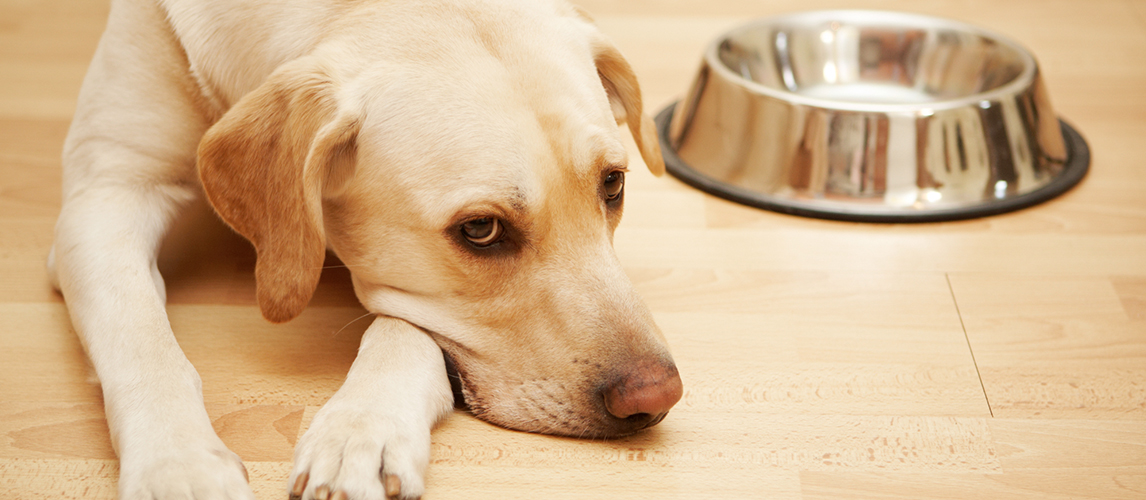Long gone are the days when dogs ate only scraps from our dinner tables, but who hasn’t sneaked a tasty morsel of “people food” to their dog from time to time? Dogs do not have a magic instinct that keeps them from eating things that won’t agree with them. Though treats from your table may be tempting to your pup, there are several common foods that can actually be harmful. By no means an exhaustive list, the items below should stay on your plate and not in your dog’s bowl.
Xylitol
Candy, gum, toothpaste, baked goods, and some diet foods are sweetened with xylitol. Even many peanut butters, a favorite treat for many dogs, can contain this sweetener. Early symptoms include vomiting, lethargy, and coordination problems. Eventually, your dog may have seizures or liver failure.
Avocado
Avocados may be “in” with the hipsters, but they are “out” for your pooch. They have something called persin, which is fine for humans who aren’t allergic to it, but too much might cause vomiting or diarrhea in dogs. If you grow avocados at home, keep your dog away from the plants. Persin is in the leaves, seed, and bark, as well as the fruit.
Alcohol
Alcohol has the same effect on a dog’s liver and brain that it has on people, but it takes a LOT less to hurt your dog – Your dog is a light-weight when it comes to alcohol. Just a little beer, liquor, wine, or food containing alcohol can be bad. It can cause vomiting, diarrhea, coordination problems, breathing problems, coma, even death. And the smaller your dog, the worse it can be.
Onions and Garlic
Keep onions and garlic — powdered, raw, cooked, or dehydrated — away from your dog. Watch out for shallots and chives, too. All of these can kill a dog’s red blood cells, causing anemia. A rare small dose is probably OK, but eating a lot just once can cause poisoning. Look for signs like weakness, vomiting, and breathing problems.
Coffee, Tea, and Other Caffeine
Most dogs are perky enough on their own and don’t need caffeine. In fact, it can be lethal. Watch out for coffee and tea, even the beans and the grounds. Keep your dog away from cocoa, chocolate, colas, and energy drinks. Caffeine is also in some cold medicines and pain killers. If you think your dog had caffeine, get him to the vet as soon as possible.
Grapes and Raisins
Many dogs don’t like grapes or raisins, but other less picky pups will eat anything that falls on the ground or comes from your hand. Grapes and raisins can cause kidney failure in dogs, and just a small amount can make a dog sick. Repeated vomiting is an early sign. Within a day, your dog will get sluggish and depressed.
Milk and Other Dairy Products
On a hot day, it may be tempting to share your ice cream with your dog. Instead, give her some cold water or an ice cube. Milk and milk-based products can cause diarrhea and other digestive problems for your pup. They can also trigger food allergies, causing itching. Many dogs LOVE cheese and tolerate it well, but be sure to try small amounts and wait in between cheesy snacks to make sure your dog enjoys it both in his mouth and in his digestive tract.
Macadamia Nuts
Keep your dog away from macadamia nuts and foods that have macadamia nuts in them. Just six raw or roasted macadamia nuts can make a dog sick. Look for symptoms like muscle shakes, vomiting, high temperature, and weakness in his back legs. Eating chocolate with the nuts will make symptoms worse, maybe even leading to death.
Chocolate
Most people know that chocolate is bad for dogs. The problem in chocolate is theobromine. It’s in all kinds of chocolate, even white chocolate. The most dangerous types are dark chocolate and unsweetened baking chocolate. Chocolate can cause a dog to vomit and have diarrhea. It can also cause heart problems, tremors, seizures, and death.
Salt
It’s not a good idea to share salty foods like chips or pretzels with your dog. Eating too much salt can make your dog seriously thirsty. That means a lot of trips to the fire hydrant and it could lead to sodium ion poisoning. Symptoms of too much salt include vomiting, diarrhea, depression, tremors, high temperature, and seizures.
Yeast Dough
Before it’s baked, bread dough needs to rise. And, that’s exactly what it would do in your dog’s stomach if he ate it. As it swells inside, the dough can stretch your dog’s abdomen and cause a lot of pain. Also, when the yeast ferments the dough to make it rise, it makes alcohol that can lead to alcohol poisoning.
Your Medicine
People shouldn’t take dog medicine, and likewise, dogs shouldn’t take people medicine. Just as you do for your kids, keep all medicines out of your dog’s reach. Never give your dog any over-the-counter medicine unless your vet tells you to. Ingredients such as acetaminophen or ibuprofen are common in pain relievers and cold medicine, and they can be deadly for your dog.
Baking Supplies
Many other things often found in your kitchen cupboard can hurt your dog. Baking powder and baking soda are both highly toxic. So are nutmeg and other spices. Keep food high enough to be out of your dog’s reach and keep pantry doors closed.













